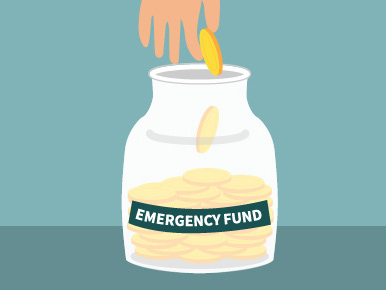Whether you're a 25-year-old just starting out or a 55-plus-year-old nearing retirement, you're never too young or too old to take out cover. The reality is, the unexpected can happen anytime. And that's why it's so important to put in place an appropriate insurance plan - one that covers your most likely risks.
Here are some key things to consider:
No one is bulletproof
Thinking about the unexpected isn't easy, and especially if you're young, certain scenarios may seem off the table for now. However, unfortunately, accidents and certain serious medical conditions - like diabetes and bowel cancer - can happen to the young and the old alike.
Do you have any financial commitments, like a high level of debt or a mortgage, or people depending on you? Based on your circumstances, and the key assets you need to protect (for example, your income, your health or your house), a personal insurance policy may help your family stay financial afloat if something were to happen to you.
Why consider insurance when young
Generally speaking, the younger and healthier you are at the time you apply for insurance, the more affordable your premiums can be. As you get older, and your risk of claiming on your policy increases, the higher the premiums are likely to be.
Having said that, stepped (age-related) premiums aren't the only type of premium available. Depending on your circumstances, you may consider choosing level premiums instead, and locking in your premium rate over the expected life of the policy. Level cover usually starts out higher than stepped cover, but because your premiums don't increase with age, it can be more affordable in the long run - learn more here.
Another key reason to consider insurance while young and healthy is a lack of pre-existing conditions. The longer you wait, the greater the chance of developing a health problem that may be uninsurable down the track, or lead to comparatively higher insurance premiums. By taking out cover when young, any medical conditions you may develop later in life will be covered (as long as you keep the policy, of course).
What if you're no longer in your prime?
Even if you're older or past the stage when level-premium would be a helpful option, there are ways to secure an appropriate and affordable level of cover.
For example, if you take out health insurance, you can consider increasing the excess. With lump-sum covers (like life insurance or trauma insurance), you can always carefully assess how much you need and what you need it for.
As for income protection, you can extend the wait time before a benefit is paid, depending on how long you can afford to go without an income. Keep in mind that you need to be between 16 and 59 to take out this cover, and all cover generally ends at 65 (or 70 depending on your policy).
What about self-insurance?
Some people opt for 'self-insuring' and put the money they would spend on their premiums into an emergency fund, ready to draw on in case of unexpected expenses.
However, putting aside an appropriate amount of money takes time and a lot of effort. Some medical procedures, for example, can easily run into six figures. Plus, if you have a mortgage or dependants, the financial 'safety net' that your family would need to 'survive' without your contribution is likely to be significant.
The bottom line is, if you suddenly stopped earning an income or worse, these commitments could easily turn into a burden for your family or partner. Insurance is designed to ease the impact so that, should something happen to you, money would be one less thing to worry about.
Let LifeDirect help you protect your future
At LifeDirect, we're on a mission to make insurance easy for Kiwis. Whatever your age, having a backup plan to lean on is important, as it can help you and your family maintain your lifestyle and look at the future with peace of mind.
Try our handy quote comparison tool, and get quotes in minutes from some of New Zealand's top insurers. Whether it's life insurance, trauma insurance, health insurance or income protection, we get New Zealanders covered.
Need help? Contact our team here or give us a call on 0800 800 400. Our friendly team will be happy to assist you.
Disclaimer: Please note that the content provided in this article is intended as an overview and as general information only. While care is taken to ensure accuracy and reliability, the information provided is subject to continuous change and may not reflect current development or address your situation. Before making any decisions based on the information provided in this article, please use your discretion and












